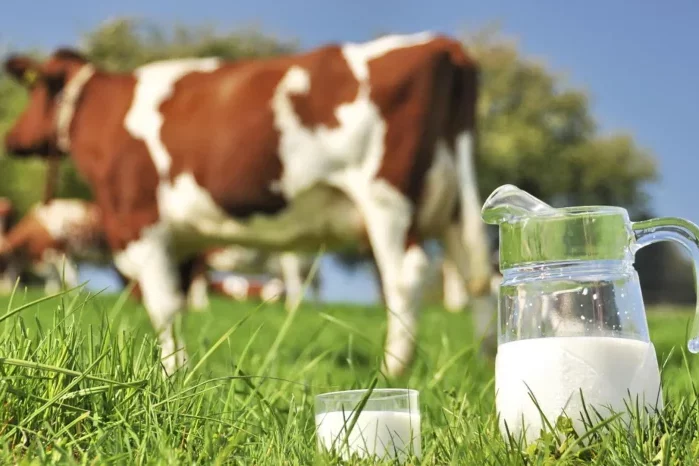For many, cow’s milk is a staple beverage enjoyed for its creamy texture and nutritional benefits. Unfortunately, recent studies have suggested a potential link between cow’s milk consumption and the development of type 1 diabetes, a chronic autoimmune condition characterized by the destruction of insulin-producing cells in the pancreas.
In this in-depth analysis, we’ll delve into the research surrounding this controversial topic and explore the implications for individuals who regularly consume cow’s milk.
Understanding Type 1 Diabetes
Type 1 diabetes, often diagnosed in childhood or adolescence, occurs when the immune system mistakenly attacks and destroys insulin-producing beta cells in the pancreas.
While genetic predisposition plays a significant role in susceptibility to type 1 diabetes, environmental factors are believed to trigger the autoimmune response. Among these environmental factors, dietary components have garnered attention, with cow’s milk emerging as a potential candidate for influencing disease risk.
Unraveling the Hypothesis
Researchers have proposed several mechanisms by which cow’s milk consumption may contribute to the development of type 1 diabetes.
One hypothesis suggests that proteins present in cow’s milk, such as casein and whey, may resemble structures found in pancreatic beta cells, leading to immune system confusion and the production of autoantibodies that attack both the milk proteins and pancreatic cells.
Additionally, the high concentration of bovine insulin in cow’s milk could potentially trigger an immune response in susceptible individuals, further exacerbating pancreatic inflammation and beta cell destruction.
Studies Linking Cow’s Milk to Type 1 Diabetes
Numerous epidemiological studies have been conducted to explore the potential association between cow’s milk consumption and the incidence of type 1 diabetes. These studies have been pivotal in shedding light on the complex interplay between dietary factors and autoimmune diseases.
While findings from these investigations have been varied, several large-scale studies have reported a noteworthy correlation between early cow’s milk exposure and an increased risk of developing type 1 diabetes later in life. These studies, spanning diverse populations and demographics, have consistently observed higher rates of type 1 diabetes among individuals with greater cow’s milk consumption, particularly during infancy and early childhood.
Furthermore, the strength of the association between cow’s milk consumption and type 1 diabetes risk has been a subject of considerable debate and scrutiny within the scientific community.
While some studies have demonstrated a robust correlation, others have yielded more modest or inconclusive findings. This variability in research outcomes underscores the complexity of the issue and the need for further investigation into the underlying mechanisms driving this relationship.
Despite the inherent challenges in establishing causality and drawing definitive conclusions from epidemiological studies, the cumulative evidence suggests a potential role for cow’s milk consumption in influencing type 1 diabetes risk. Factors such as genetic predisposition, immune system modulation, and environmental triggers may interact with cow’s milk proteins to precipitate autoimmune responses leading to pancreatic beta-cell destruction.
Therefore, while the exact mechanisms remain to be fully elucidated, the findings from epidemiological studies underscore the importance of considering dietary factors, including cow’s milk consumption, in the context of type 1 diabetes prevention and management.
As research in this field continues to evolve, it is imperative to prioritize evidence-based dietary recommendations and promote further interdisciplinary collaboration to address this complex health issue effectively.
Considering Confounding Factors
It’s essential to consider potential confounding factors when interpreting the findings of epidemiological studies on cow’s milk and type 1 diabetes. Factors such as genetic predisposition, family history of diabetes, breastfeeding practices, and overall dietary patterns may influence disease risk independently of cow’s milk consumption.
Furthermore, the complexity of the immune system and the multifactorial nature of type 1 diabetes make it challenging to establish a causal relationship between cow’s milk and disease development definitively.
Navigating Dietary Recommendations
Given the ongoing debate surrounding cow’s milk and type 1 diabetes, individuals who regularly consume cow’s milk may wonder about the implications for their health.
While research suggests a potential association between cow’s milk consumption and type 1 diabetes risk, it’s essential to approach dietary decisions with caution and consider individual factors such as family history and overall health status.
For those concerned about the potential risks of cow’s milk, alternative milk options such as soy, almond, or oat milk may provide suitable substitutes while still offering essential nutrients.
Conclusion
In conclusion, the relationship between cow’s milk consumption and the development of type 1 diabetes remains a topic of scientific inquiry and debate. While some studies suggest a possible association, additional research is needed to clarify the underlying mechanisms and establish causality definitively.
Individuals who regularly consume cow’s milk should be aware of the ongoing research and consider consulting with healthcare professionals to make informed decisions about their dietary choices.
By staying informed and prioritizing overall health and wellness, individuals can navigate the complexities of dietary recommendations and make choices that align with their individual needs and preferences.

























